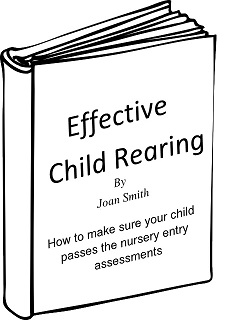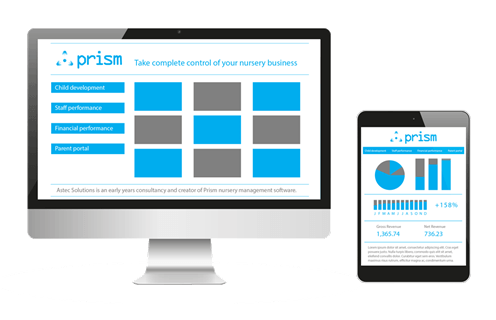“Partnerships with parents” seems to be drummed into every new policy, initiative or conference speech. This isn’t a bad thing. In fact, developing a strong partnership with parents can help make for better care for a child.
When we have meetings with parents, as practitioners and educators, we’re great at talking about their child and we’re also very vocal about how parents can support their child at home, with things like potty training.
But the question I often ask myself is: are we having the conversations that matter?
Communicating about communicating
Thinking about it, you may be the only educational point of contact that a parent has.
Some parents will have read every parenting blog out there and possibly several books with titles like ‘effective child rearing’. However, the vast majority are doing the best they can and often guessing at what is right.
If you are the one source of information, support and reassurance that they can rely on, what are the implications if there are some important conversations that you’re not having with your parents? (Or that you’re not having regularly enough?)
One area that I think we often ignore as a sector within our parental dialogue is communicating about communicating.
Although rare – thank goodness – it is not uncommon to notice less than favourable exchanges between a parent and a child or to see a child being ignored. Imagine the difference it would make if those parents had had a conversation about appropriate communication or behaviour strategies from a knowledgeable professional, such as you.
We don’t want to be seen as overly interfering but it is important that, as experienced educators, we can sensitively raise these issues.
Simple things can make a huge difference, such as:
- helping parents to bring educational dialogue in their day-to-day conversations
- teaching parents simple behavioural management strategies.
We need to find ways to bring these sorts of lessons into our settings. There are some brilliant examples of providers trying to address this, such as LEYF’s excellent ‘each one teach one’ initiative – find out more in this informative video. However, I don’t think there’s enough of this sort of work happening.
So, how can we start talking about and tackling challenging issues with our parents?
Lessons from Canada?
Those of you that know me will know that I’m very proud of my Canadian heritage. I have spent a lot of time in the country and have come to believe that communicating is something Canadians do differently.
I shared my thoughts with Anne Stallard, a Canadian early years teaching veteran of over 30 years who also happens to be my mother! Anne suggested that asking questions and having extended conversations is embedded in the Canadian culture.
Although this is something that we do well with children within settings in the UK, I wonder if it is something we need to promote more outside of the classroom and with our parents.
“To bring about change you need to be conscious of it and purposefully change the way you are. So [if you want to encourage change] you would coach parents, rather than giving orders. You would model how it could be done differently. It’s about making people stop and think about the interaction you are having.” (Anne Stallard)
1. Get to know your families
Getting to know who you’re working with gives you a good starting point from which to build. You may have to be creative!
One-to-ones can be extremely informative, but they don’t work for everyone. Most parents are happy to talk about their child, but some find it difficult to engage in formal meetings – let alone in discussion about any sensitive issues.
Group events can be a great alternative and are an opportunity to get to know people in a more casual and relational way. An event could be anything from a meal together to a day out or even running a training course. We recently held a cultural food event at our nursery, where both staff and parents brought traditional dishes from their home cultures to share with each other. This gave the parents a chance to share a little bit of themselves in a non-threatening way. And the food was lovely!
Think about the type of events or subjects that will encourage your parents to attend. Think also about the barriers that may prevent them from attending and how you can overcome them. For example, offering a crèche may allow more parents to attend.
People have different lifestyles, so hold events at different times of the day/year to increase the opportunity to reach as many parents as possible. We’ve found that holding an event at the weekend is great for bringing in families. Tech-savvy readers might even like to try a group Skype or a Google Hangout for parents who may struggle to make it otherwise.
Hot tip – review your settling-in process
The first time a potential parent contacts you is the first opportunity you have to build relationships.
You can immediately provide the parent with valuable about the nursery and your team and begin to develop and understanding of the child and the family.
Choosing childcare is a big decision. Think about the ways you can make the initial encounters more welcoming and a more engaging and useful experience. One good idea is to invite the parent to the nursery – or even a local café – for their initial consultation over a cup of tea and a cake.
In this first meeting, it is important to create a balance between you as a person and as a knowledgeable professional. Key person bios that provide details of professional qualifications as well as individual passions and interests are a great way to introduce relevant members of your team.
2. Choose your key person carefully
I am of the belief that a child shouldn’t be assigned a key person straight away. At our nursery, we assign a key person after the settling-in period is complete to ensure the best match for the child and the family.
One of our team, for example, has built up a great rapport with some of our young mums who wouldn’t talk to anyone else. That trust has been fundamental to having some of those difficult conversations and sharing new ways to do things which then has a positive impact on that child’s development.
It’s can be a valuable exercise to people who do this well to support others in the team. We are planning a training day centred around this and will be using some of our staff to support and train others.
3. Creatively educate
No parent will enjoy a lecture and, if some of the big issues aren’t dealt with sensitively, it could cause a rift.
Think of creative ways to educate. You could put some instructional videos on your website. Or you can provide some short guides to download, such as ‘how to keep calm when you’re shopping with children’, which could be filled with resources like pictorial shopping lists.
We recently had some concerns about some of our children’s diets (which is another ‘big issue’ that we ignore). We know the children eat well when they’re with us – in fact, we can check exactly what they eat – but we don’t know what they eat at home. So, our preschool team knocked heads and came up with an idea that they hope will sensitively educate parents. They’ve suggested that, as a Christmas present to our parents, we make a healthy simple recipe book with quotes from the children and pictures of them making the recipes. We’re also planning to hold a cooking course at the setting with our resident chef so that parents and children can come and learn to cook together.
These are non-threatening strategies that can help us prevent and/or address potentially bigger issues.
4. Touch base
Regular meetings and catch ups with parents are important – and I’m not simply talking about parents’ evenings.
Our main focus is always the child, but when was the last time you had a chat about the parent? Have you asked any of your parents if there are any learning areas that they are struggling to support their child in at home? Have you asked them honestly about what they would like from the nursery? If you have done that ground work of relationship building, you’ll find that they’ll be happy to open up.
My previous post talked about the BEEL and EEL project we carried out in the setting (LINK). One of the most valuable experiences of the project was getting half an hour just to have a frank discussion with the parents about their views and values. Make some time to find out what life is really like for them.
*
It goes without saying that parents are vitally important to child development, so it’s important that you are all both working together. So, my challenge to you is to evaluate your practice and the relationships you have with parents.
You may find that need to have some tough discussions with parents. At the very least, you will find some changes you will help you attune to their needs.
- Have you built up secure enough relationships right from the settling-in period?
- Do you make enough time to talk with parents? Do you use that time to discuss ‘real’ issues?
- Are you confident enough to broach sensitive issues?
- Do you share your expertise as an educator in meaningful ways?
Heather Stallard
Latest posts by Heather Stallard (see all)
- Vision, values & clarity - 7 January 2016
- Parental Partnerships – the conversations we’re not having - 10 November 2015
- Quality improvement in process: adopting BEEL and EEL - 13 October 2015










Recent Comments